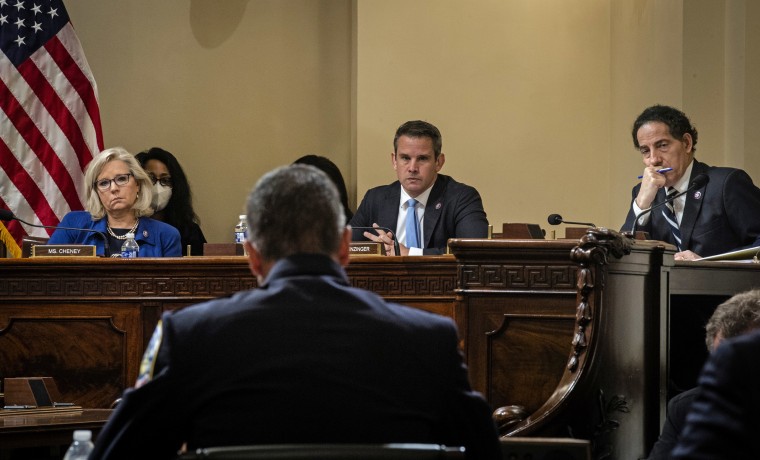WASHINGTON — A federal judge has denied an effort by the Republican National Committee to block the House select committee investigating Jan. 6 from obtaining email and fundraising data from digital communications vendor Salesforce.
In a 53-page ruling, U.S. District Court Judge Timothy J. Kelly of Washington, D.C., shot down the RNC's argument that the subpoena the committee issued to Salesforce in February should be denied on First Amendment grounds.
"House Defendants are not seeking, and Salesforce is not producing, any disaggregated information about any of the RNC’s donors, volunteers, or email recipients, including any person’s personally identifiable information," the judge wrote in his opinion.
Kelly also said he didn't agree with the RNC's argument that the House committee lacks the proper authorization to wield investigative power. He noted that the panel was narrowly focusing on a short period of time between the 2020 presidential election and Jan. 6, asking for information about fundraising emails sent through Salesforce's platform that helped the RNC spread claims that Joe Biden's victory was fraudulent.
"Through the subpoena, the select committee seeks information that will help it understand whether and how much those email campaigns attracted attention and thus were a factor in the January 6 attack," Kelly wrote. "The select committee’s demand is narrowly tailored to its interest. As the court has already explained, the select committee seeks reasonably relevant information from a narrow window during which the RNC sent emails promoting claims that the presidential election was fraudulent or stolen."
The RNC has said that disclosure of the email data by Salesforce would "frustrate" its "ability to pursue political goals such as winning elections and advocating for its policies." The judge, however, said "less is at stake than the RNC represents" because some of the email information "is already publicly available or readily deducible from publicly available sources."
Kelly ordered Salesforce not to release any of the information requested in the subpoena before Wednesday to give the RNC time to appeal the judge's decision.
The ruling stemmed from the RNC's lawsuit against the House select committee and Speaker Nancy Pelosi, D-Calif., in early March following the Feb. 23 subpoena. The RNC called the subpoena a "fishing expedition."
"Nancy Pelosi and the Committee have weaponized Congress’ investigatory powers by issuing this staggeringly broad subpoena which tramples on core First Amendment rights of the RNC and millions of Americans," RNC attorney Justin Riemer said in a statement at the time.
In response to the lawsuit, House committee spokesman Tim Mulvey said in March that the subpoena focuses on fundraising emails from former President Donald Trump’s campaign and the RNC that include false claims about election fraud.
“The select committee issued a subpoena to an email fundraising vendor in order to help investigators understand the impact of false, inflammatory messages in the weeks before January 6th, the flow of funds, and whether contributions were actually directed to the purpose indicated,” Mulvey said in a statement. “This action has absolutely nothing to do with getting the private information of voters or donors.”

